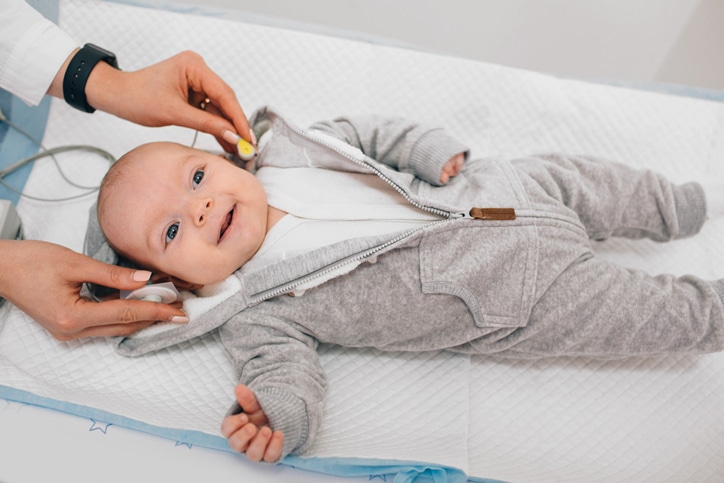All 50 states and most U.S. territories fund Early Hearing Detection and Intervention (EHDI) programs, which ensure that all babies born with hearing loss get the resources they need to develop speech and language skills alongside their peers. The goal is for all babies to be screened for hearing loss by one month of age, diagnosed by three months of age and receive intervention services by six months of age.
Importance of Early Intervention 
The sense of hearing does more than simply allow us to listen to what other people are saying. It impacts a child’s development of vocabulary, sentence structure and social skills. There are four major ways hearing loss can affect children’s development, according to the American Speech-Language-Hearing Association:
- Hearing loss causes delays in speech and language skills
- Language deficit results in lower academic achievement
- Communication difficulties cause social isolation and low confidence
- Career choice can be negatively impacted
The gap between children with normal hearing and children with hearing loss may widen as they age, but with proper intervention, children with hearing loss can catch up.
Types of Newborn Hearing Screenings
Hearing screenings are perfectly safe and can be performed while your baby is sleeping. There are two tests that are used; the doctor may recommend one or both.
Otoacoustic Emissions (OAE)
This test utilizes a miniature earphone and microphone in the baby’s ear. Sound is played through the earphone, and the microphone detects whether an echo is present. If hearing is normal, the microphone will detect an echo. If the baby has hearing loss, no echo is recorded.
Auditory Brainstem Response (ABR)
This test utilizes electrodes placed on the baby’s head and measures how the auditory nerve responds to sound. The test is performed on each ear and a passing result confirms the infant’s brain is receiving the sound.
What Happens After a Failed Test
It is not uncommon for a baby to fail initial screenings due to fluid remaining in the ear after birth. This is why follow-up testing is key. If the baby fails their first test, you’ll be referred to a pediatric audiologist, who will perform further screening.
If follow-up tests confirm a hearing loss, there are many options available. Babies can be fit with hearing aids at as young as four weeks old. Your audiologist will recommend what is best for your baby’s unique hearing loss.
For more information or to schedule an appointment, call the experts at Torrance Audiology today.
